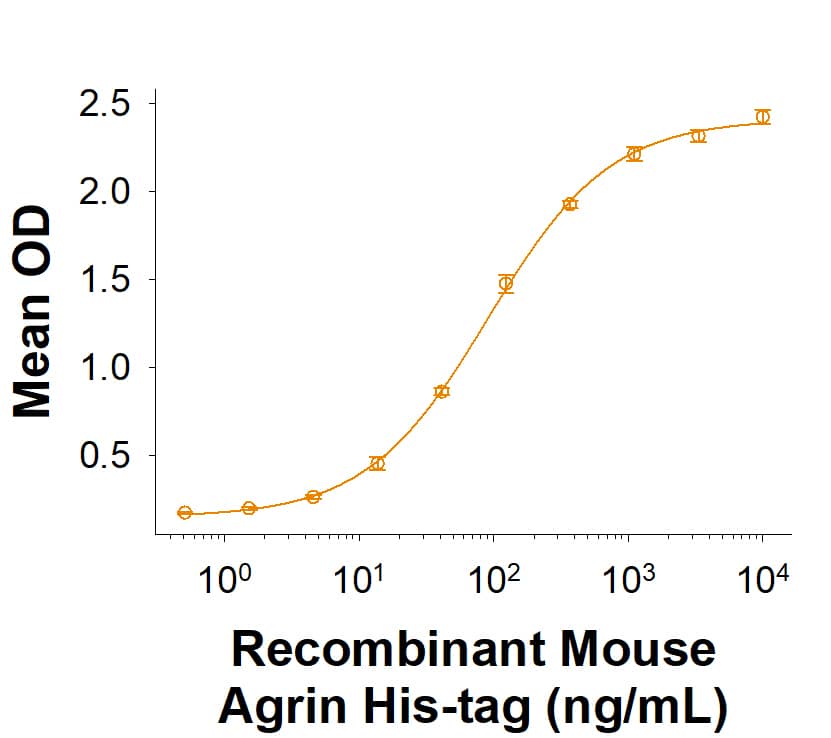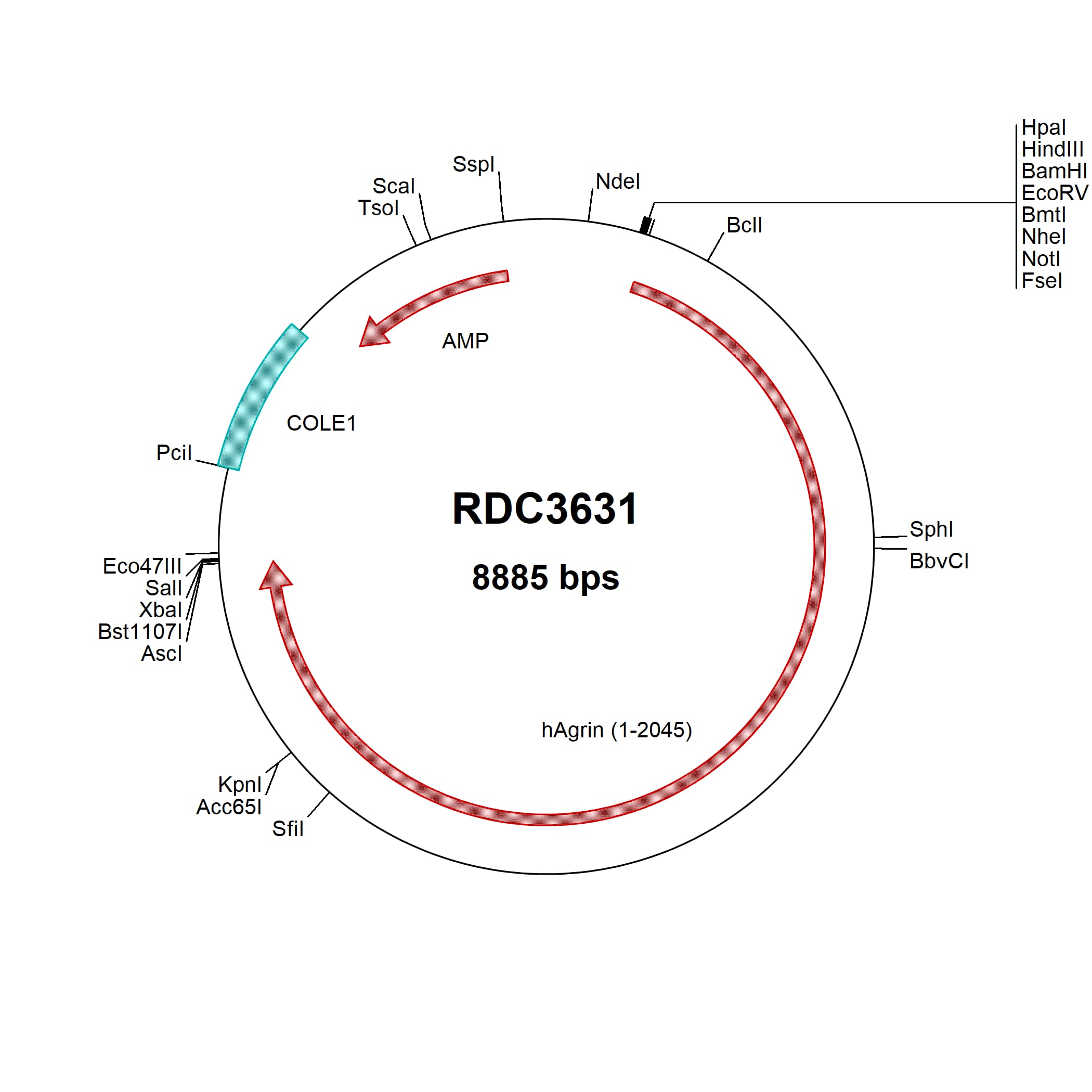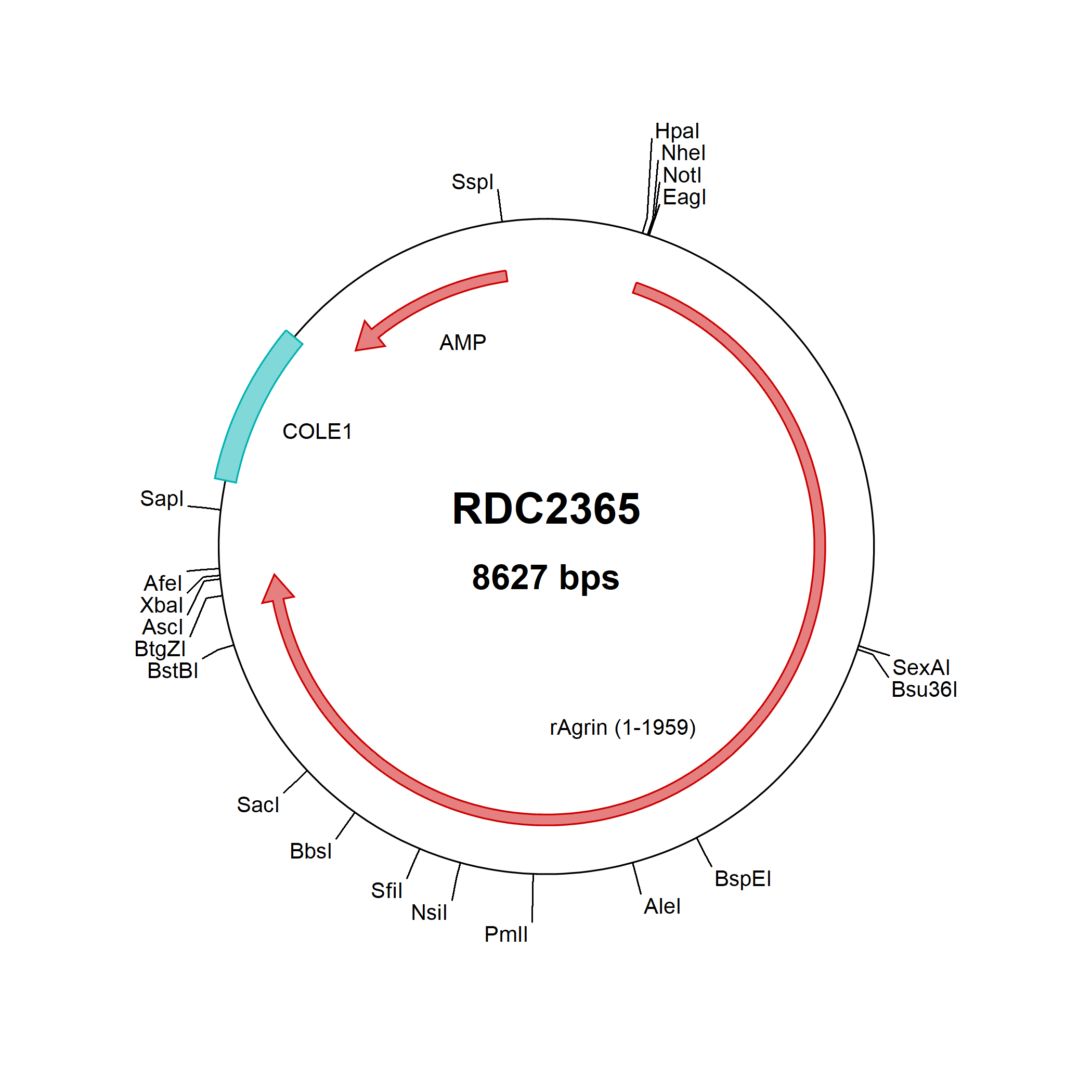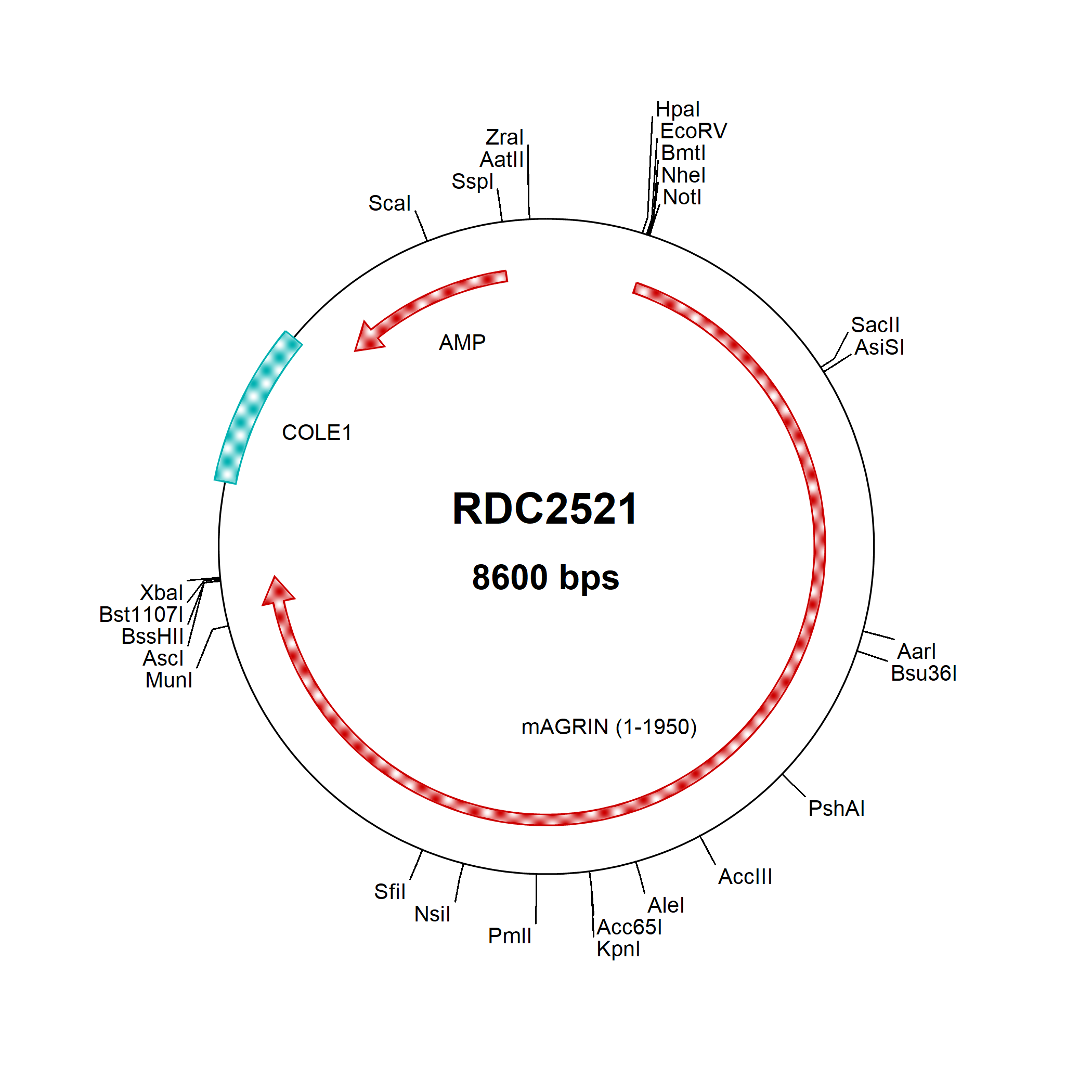Agrin Products
Agrin is a 400-600 kDa heparan sulfate proteoglycan component of the extracellular matrix. Multiple forms of are generated by alternative splicing and proteolytic cleavage. Agrin binds to BMP-2, BMP-4, and TGF-beta, and it blocks BMP-induced signaling through BMPR-IA. Agrin binds to a complex of alpha-Dystroglycan, MuSK, and LRP4 on myotubes and induces the clustering of AChR and motoneuron-myotube adhesion at the neuromuscular junction.
It binds the Abeta (1-40) peptide in Alzheimer’s disease plaques, promotes amyloid fibril formation, and regulates neuronal excitability. It also binds the gp41 coat protein of HIV-1 and functions as an epithelial cell-virus attachment receptor. During T cell activation, Agrin contributes to the formation of the immunological synapse and regulates the threshold of T cell activation. Agrin is upregulated in hepatocellular carcinoma, where it enhances cell proliferation and tumor progression.
Products:
58 results for "Agrin" in Products
58 results for "Agrin" in Products
Agrin Products
Agrin is a 400-600 kDa heparan sulfate proteoglycan component of the extracellular matrix. Multiple forms of are generated by alternative splicing and proteolytic cleavage. Agrin binds to BMP-2, BMP-4, and TGF-beta, and it blocks BMP-induced signaling through BMPR-IA. Agrin binds to a complex of alpha-Dystroglycan, MuSK, and LRP4 on myotubes and induces the clustering of AChR and motoneuron-myotube adhesion at the neuromuscular junction.
It binds the Abeta (1-40) peptide in Alzheimer’s disease plaques, promotes amyloid fibril formation, and regulates neuronal excitability. It also binds the gp41 coat protein of HIV-1 and functions as an epithelial cell-virus attachment receptor. During T cell activation, Agrin contributes to the formation of the immunological synapse and regulates the threshold of T cell activation. Agrin is upregulated in hepatocellular carcinoma, where it enhances cell proliferation and tumor progression.
Products:
| Source: | Sf 21 (baculovirus) |
| Accession #: | P25304.2 |
| Applications: | BA, BA |
| Reactivity: | Rat |
| Details: | Goat IgG Polyclonal |
| Applications: | WB, IHC, Neut |
| Source: | CHO |
| Accession #: | NP_940978 |
| Applications: | BA |
| Reactivity: | Human |
| Details: | Rabbit IgG Polyclonal |
| Applications: | IHC, WB, ICC/IF |
| Source: | CHO |
| Accession #: | O00468 |
| Applications: | BA |
| Reactivity: | Rat |
| Details: | Goat IgG Polyclonal |
| Applications: | WB |
| Accession #: | A2ASQ1.1 |
| Applications: | BA |
| Reactivity: | Rat |
| Details: | Mouse IgG1 Monoclonal Clone #76805 |
| Applications: | WB |
| Reactivity: | Mouse, Rat |
| Details: | Mouse IgG2 Alpha Monoclonal Clone #AGR 131 |
| Applications: | IHC, WB, ICC/IF, MA |
| Reactivity: | Mouse, Rat |
| Details: | Mouse IgG1 Monoclonal Clone #Agr 33 |
| Applications: | IHC, WB, ICC/IF |
| Applications: | ELISA |
| Applications: | ELISA |
| Applications: | ELISA |
| Applications: | AC |
| Reactivity: | Mouse, Rat |
| Details: | Mouse IgG2 Alpha Monoclonal Clone #AGR 131 |
| Applications: | IHC, WB, ICC/IF, MA |
| Reactivity: | Mouse, Rat |
| Details: | Mouse IgG2 Alpha Monoclonal Clone #AGR 131 |
| Applications: | IHC, WB, ICC/IF, MA |
| Reactivity: | Mouse, Rat |
| Details: | Mouse IgG2 Alpha Monoclonal Clone #AGR 131 |
| Applications: | IHC, WB, ICC/IF, MA |
| Reactivity: | Mouse, Rat |
| Details: | Mouse IgG2 Alpha Monoclonal Clone #AGR 131 |
| Applications: | IHC, WB, ICC/IF, MA |
| Reactivity: | Mouse, Rat |
| Details: | Mouse IgG2 Alpha Monoclonal Clone #AGR 131 |
| Applications: | IHC, WB, ICC/IF, MA |
| Reactivity: | Mouse, Rat |
| Details: | Mouse IgG1 Monoclonal Clone #Agr 33 |
| Applications: | IHC, WB, ICC/IF |
| Reactivity: | Mouse, Rat |
| Details: | Mouse IgG2 Alpha Monoclonal Clone #AGR 131 |
| Applications: | IHC, WB, ICC/IF, MA |
| Reactivity: | Mouse, Rat |
| Details: | Mouse IgG2 Alpha Monoclonal Clone #AGR 131 |
| Applications: | IHC, WB, ICC/IF, MA |




![Immunocytochemistry/ Immunofluorescence: Agrin Antibody [NBP1-90209] Immunocytochemistry/ Immunofluorescence: Agrin Antibody [NBP1-90209]](https://resources.bio-techne.com/images/products/Agrin-Antibody-Immunocytochemistry-Immunofluorescence-NBP1-90209-img0007.jpg)

![Immunohistochemistry-Paraffin: Agrin Antibody (AGR 131) [NB110-11069] Immunohistochemistry-Paraffin: Agrin Antibody (AGR 131) [NB110-11069]](https://resources.bio-techne.com/images/products/Agrin-Antibody-AGR-131-Immunohistochemistry-Paraffin-NB110-11069-img0001.jpg)



![Immunohistochemistry: Agrin Antibody (Agr 33) [NB120-12358] Immunohistochemistry: Agrin Antibody (Agr 33) [NB120-12358]](https://resources.bio-techne.com/images/products/Agrin-Antibody-Agr-33-Immunohistochemistry-NB120-12358-img0001.jpg)
![ELISA: Mouse Agrin ELISA Kit (Colorimetric) [NBP2-66662] - Mouse Agrin ELISA Kit (Colorimetric)](https://resources.bio-techne.com/images/products/nbp2-66662_mouse-agrin-elisa-kit-colorimetric-132202416264325.jpg)
![ELISA: Human Agrin ELISA Kit (Chemiluminescence) [NBP2-66661] - Human Agrin ELISA Kit (Chemiluminescence)](https://resources.bio-techne.com/images/products/nbp2-66661_human-agrin-elisa-kit-chemiluminescence-132202416143055.jpg)
![ELISA: Rat Agrin ELISA Kit (Colorimetric) [NBP2-66663] - Rat Agrin ELISA Kit (Colorimetric)](https://resources.bio-techne.com/images/products/nbp2-66663_rat-agrin-elisa-kit-colorimetric-132202416201934.jpg)
